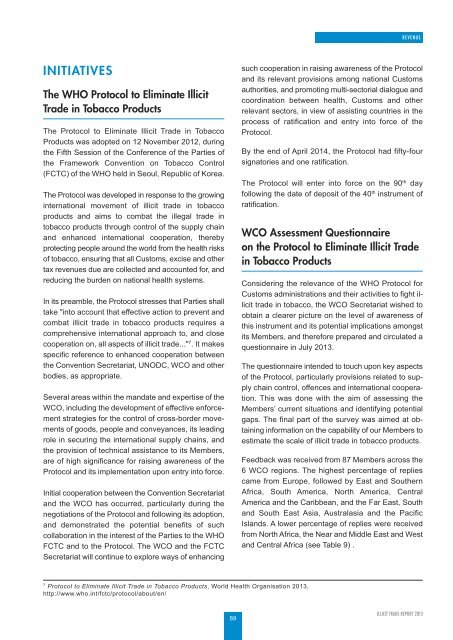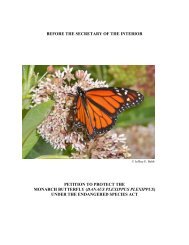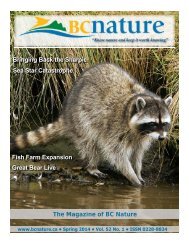Create successful ePaper yourself
Turn your PDF publications into a flip-book with our unique Google optimized e-Paper software.
REVENUE<br />
INITIATIVES<br />
The WHO Protocol to Eliminate Illicit<br />
Trade in Tobacco Products<br />
The Protocol to Eliminate Illicit Trade in Tobacco<br />
Products was adopted on 12 November 2012, during<br />
the Fifth Session of the Conference of the Parties of<br />
the Framework Convention on Tobacco Control<br />
(FCTC) of the WHO held in Seoul, Republic of Korea.<br />
The Protocol was developed in response to the growing<br />
international movement of <strong>illicit</strong> <strong>trade</strong> in tobacco<br />
products and aims to combat the illegal <strong>trade</strong> in<br />
tobacco products through control of the supply chain<br />
and enhanced international cooperation, thereby<br />
protecting people around the world from the health risks<br />
of tobacco, ensuring that all Customs, excise and other<br />
tax revenues due are collected and accounted for, and<br />
reducing the burden on national health systems.<br />
In its preamble, the Protocol stresses that Parties shall<br />
take "into account that effective action to prevent and<br />
combat <strong>illicit</strong> <strong>trade</strong> in tobacco products requires a<br />
comprehensive international approach to, and close<br />
cooperation on, all aspects of <strong>illicit</strong> <strong>trade</strong>..." 7 . It makes<br />
specific reference to enhanced cooperation between<br />
the Convention Secretariat, UNODC, WCO and other<br />
bodies, as appropriate.<br />
Several areas within the mandate and expertise of the<br />
WCO, including the development of effective enforcement<br />
strategies for the control of cross-border movements<br />
of goods, people and conveyances, its leading<br />
role in securing the international supply chains, and<br />
the provision of technical assistance to its Members,<br />
are of high significance for raising awareness of the<br />
Protocol and its implementation upon entry into force.<br />
Initial cooperation between the Convention Secretariat<br />
and the WCO has occurred, particularly during the<br />
negotiations of the Protocol and following its adoption,<br />
and demonstrated the potential benefits of such<br />
collaboration in the interest of the Parties to the WHO<br />
FCTC and to the Protocol. The WCO and the FCTC<br />
Secretariat will continue to explore ways of enhancing<br />
such cooperation in raising awareness of the Protocol<br />
and its relevant provisions among national Customs<br />
authorities, and promoting multi-sectorial dialogue and<br />
coordination between health, Customs and other<br />
relevant sectors, in view of assisting countries in the<br />
process of ratification and entry into force of the<br />
Protocol.<br />
By the end of April 2014, the Protocol had fifty-four<br />
signatories and one ratification.<br />
The Protocol will enter into force on the 90 th day<br />
following the date of deposit of the 40 th instrument of<br />
ratification.<br />
WCO Assessment Questionnaire<br />
on the Protocol to Eliminate Illicit Trade<br />
in Tobacco Products<br />
Considering the relevance of the WHO Protocol for<br />
Customs administrations and their activities to fight <strong>illicit</strong><br />
<strong>trade</strong> in tobacco, the WCO Secretariat wished to<br />
obtain a clearer picture on the level of awareness of<br />
this instrument and its potential implications amongst<br />
its Members, and therefore prepared and circulated a<br />
questionnaire in July <strong>2013</strong>.<br />
The questionnaire intended to touch upon key aspects<br />
of the Protocol, particularly provisions related to supply<br />
chain control, offences and international cooperation.<br />
This was done with the aim of assessing the<br />
Members’ current situations and identifying potential<br />
gaps. The final part of the survey was aimed at obtaining<br />
information on the capability of our Members to<br />
estimate the scale of <strong>illicit</strong> <strong>trade</strong> in tobacco products.<br />
Feedback was received from 87 Members across the<br />
6 WCO regions. The highest percentage of replies<br />
came from Europe, followed by East and Southern<br />
Africa, South America, North America, Central<br />
America and the Caribbean, and the Far East, South<br />
and South East Asia, Australasia and the Pacific<br />
Islands. A lower percentage of replies were received<br />
from North Africa, the Near and Middle East and West<br />
and Central Africa (see Table 9) .<br />
7<br />
Protocol to Eliminate Illicit Trade in Tobacco Products, World Health Organisation <strong>2013</strong>,<br />
http://www.who.int/fctc/protocol/about/en/<br />
89<br />
ILLICIT TRADE REPORT <strong>2013</strong>




